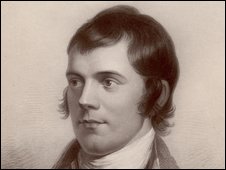By Calum Liddle and Myles Edwards
13 Nov, 2009
Children are being penalised for
using the Scots language in the
classroom as teachers are
mistaking it as bad English,
according to leading academics.
Scotland’s experts have called
for compulsory in-service
training to be provided to tackle
the “reluctance” of many English
teachers at secondary level to
deal with Scots words.
The EIS, Scotland’s Teaching Union, have previously opposed teaching Scots in secondary schools on the grounds that “not all school children are Scottish”.
Derick McClure, professor of Scots at Aberdeen University said: “I know that some teachers still make the distinction - wrongly interpreted and applied – between what they call ‘good Scots’... and what they call ‘bad English’.
McClure said “there is no co-ordination on the frontline of secondary teaching” for Scots.
He added: “I can understand the reluctance of some teachers [to teach Scots]. However, many simply do not know where to go for official information. The government should supply in-service training to teachers for the use and place of Scots in education.”
Duncan Jones of the Association of Scottish Literary Studies - an educational charity that aims to promote the study, teaching and writing of Scottish literature and the languages of Scotland - conceded that Scots was rarely ever taught at secondary level.
“We have run CPD (Continuous Progress Development) courses since the 1980s for teachers on Scots literature, specifically the Scots language. The teachers are a self-selecting group - obviously those who view Scots as a ‘bad’ language don’t show. However the courses can be very popular.”
Itchy Coo - a partnership between authors James Robertson and Mathew Fitt with Black and White Publishing in Edinburgh - provides resources for classroom education. Mathew Fitt has run workshops, classes and made presentations to over 500 schools and libraries and delivered over 150 in-house professional training sessions in 18 local authorities.
Mr Robertson said: “You are disadvantaging children educationally if you don’t enable them access to Scots material. Children need access to their own culture. Too often children in Scotland grow up believing all Scots is, is just bad English. That’s a fallacy.”
Robertson, author of The Smoky Smirr O Rain: A Scots Anthology continued: “Unless there’s a commitment in terms of actually some kind of compulsory element, it will continue to be squeezed purely because of Higher English.”
Many secondary schools have no teaching of Scots, amid accusations teachers prefer reading American literature and Shakespearean texts.
Derek Douglas of the Scottish Qualification Association (SQA) said: “From Standard Grade to Higher and all levels in between there are no authors or texts prescribed by the SQA. Each school or college decides which literature to study.”
McClure added the ‘Begbie’ image of Scots had to be addressed, in light of Scots being seen as an “under-class form of communicating”.
“We need teachers, children and young adults to grasp the difference between good Scots and bad Scots, old Scots and new Scots. Just as is done for English.”
SNP MSP Rob Gibson, who is fighting for Scots language equality in schools, defended the government’s progress.
“Scots is undergoing a resurgence backed by Government action. From the Audit and subsequent conferences which galvanised speakers and activists, to the liberation of teachers (in the curriculum for excellence) to use much more Scots in class. All are key factors in the normalising of Scots.”
Mr Gibson added: “What parity means is there’s naethin wrang wi spikin your ain leid'.”




What parity means is there’s naethin wrang wi spikin your ain leid'
- Rob Gibson, SNP MSP